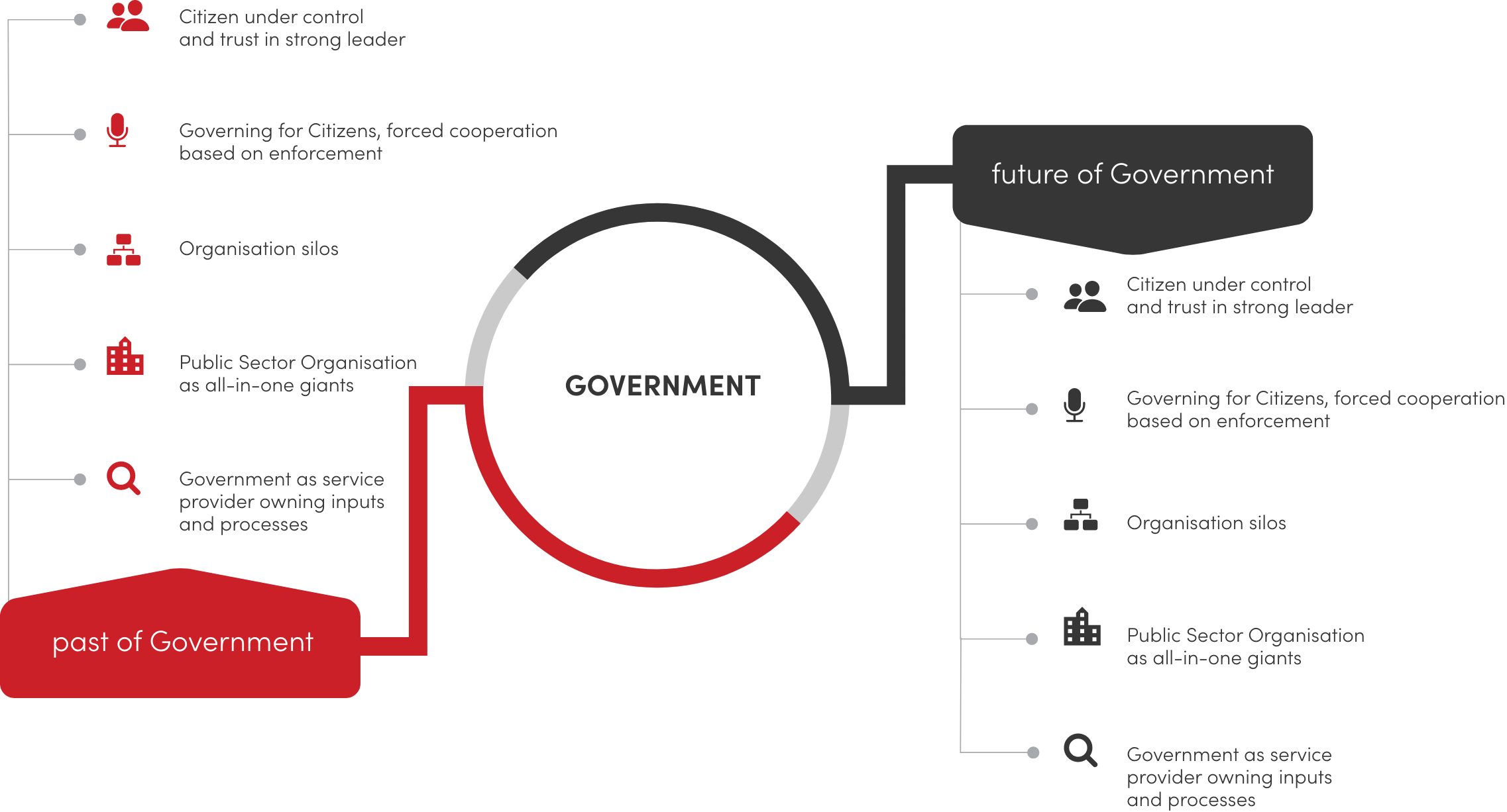Public Sector
Identify innovative solutions that improve the transparency of public services and increase the trust levels of citizens in their governments.

Introduction
Following the unexpected changes around the globe, public sector has to transform to unlock the opportunities for guidance and support to the citizens.
The unexpected changes and crisis caused by the COVID-19 pandemic has led governments around the globe to introduce unprecedented measures. Changes in consumer behaviors, digitization and emerging technologies are reshaping the way of doing business, and transforming traditional business models and values chains.
Amidst this complexity, public sector has to deal with the resulted disruption while maintaining a balance between governance and regulation while citizens are looking to their governments to provide them with guidance and support.

Past and Future of Government, Source: Public Sector Readiness in the Age of Disruption, 2019, PWC
Key Challenges
Trust and Transparency
Lack of Awareness in Public Sector Set
Balancing Public Sector Regulation and Innovation
Decision Making
Lack of Technical Skills
TOP Challenges
For Implementing Digital Governance Strategies

100%
lack of awareness in society

65%
lack of awareness in public sector

65%
lack of technical skills in public sector

65%
lack of infrastructure
Opportunities
Digital transformation is about strategy, culture and talent development. It is about employees with digital mindsets, who are rethinking business models while being agile and fast.
There is a need for developing Technology Savvy (Digital Savvy Talents) and data literate talents who can
- enable innovation
- scan the market for digital solutions that can be used to meet the needs of citizens
- integrate Big Data into the decision making processes
- increase the level of sophistication in data analysis
- communicate the organisation’s digital purpose, needs and
- priorities
prioritize the digital agenda
There is also a need for
- an open-data mindset that nourishes information sharing and supports removal of silos of knowledge
- publicly available and transparent data as allowed by privacy laws
- a raise of the level of public awareness and knowledge about data privacy laws by governments
TOP Challenges
For Implementing Digital Governance Strategies

100%
efficiency gains in government operations

75%
make the public sector more transparent

75%
enhance data and information management

75%
develop better services

25%
improve public sector ordinations

25%
improve public sector agility

25%
support more inclusive decision making process
Solutions

Big Data Solutions

Analytics

Digital Platforms

Public Sector Talents
Benefits
Benefits for Public Sector
![]() Improvements in the efficiency, quality and transparency of public services
Improvements in the efficiency, quality and transparency of public services![]() Increased trust levels of citizens in their governments
Increased trust levels of citizens in their governments
Benefits for Public Sector
![]() Better and well-informed policies and regulations
Better and well-informed policies and regulations![]() Innovative services that meet the needs of the citizens
Innovative services that meet the needs of the citizens![]() Enhanced interaction and engagement with the citizens
Enhanced interaction and engagement with the citizens![]() Enhanced collaboration between teams and departments
Enhanced collaboration between teams and departments![]() Increased organizational attractiveness of the public entities
Increased organizational attractiveness of the public entities
our Partners



Join our monthly VCL Value Talks — a platform where thought leaders and industry experts share how they’re overcoming challenges and reinventing value delivery in their fields.